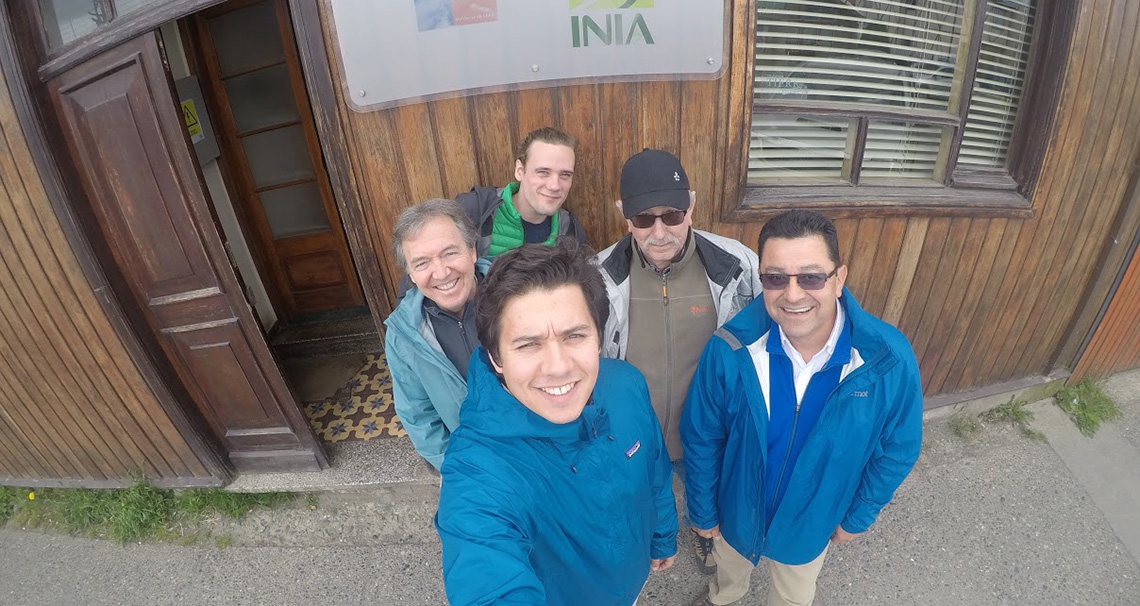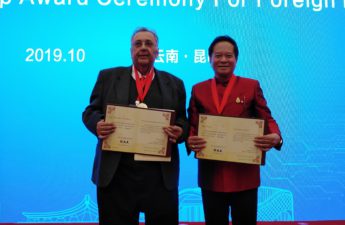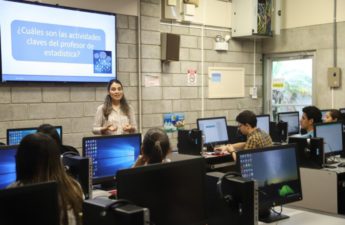The experience shows that institutions working together generate more success and have a greater impact than working individually. Therefore, joint activities among universities and research institutions usually offer great opportunities of strengthening strategic collaboration in the field of research and higher education.
Universidad de Los Lagos (ULagos-Chile), Instituto Nacional de Investigación Agropecuaria (INIA-Chile) and Swedish University of Agricultural Sciences (SLU-Sweden) are institutions that in various aspects are facing similar challenges. Since about a 10 year period, these three institutions have been working together and have had some academic partnerships, for example, through generating joint symposia and workshops in Chile and inviting researchers to Sweden for lecturing in the fields of plant breeding and plant genetic resources.
Mutual benefits
In recognition of the mutual benefits, the three institutions have the strong interest of expanding and strengthening academic and research cooperation, which it could develop new approaches and understandings to face present and future challenges. The three institutions agree to establish a framework agreement on Partnership and Cooperation to promote activities in research, education and innovation in areas of interest and benefit to the institutions.
Plant genetic resources
As a result of the signing this agreement in 2017, the institutions agreed to promote and develop research projects in the area of plant genetic resources. The effects of climate change on agriculture put high demands on plant breeders. From this perspective, it is important to collect, characterize, evaluate and conserve wild species related to the cultivated ones since they represent a valuable gene resource for the development of new varieties.
Elymnus related to cultivated species
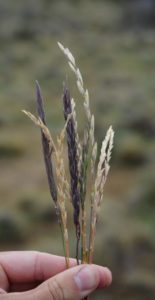 Picture: Spikes Elymus: Chilean native grass species of the genus Elymus shows a great diversity and have potentials as forage grasses in South America. Photo: Roland von Bothmer
Picture: Spikes Elymus: Chilean native grass species of the genus Elymus shows a great diversity and have potentials as forage grasses in South America. Photo: Roland von Bothmer
Therefore researchers from SLU, ULAGOS and INIA start an international project in 2018 called “Genetic diversity of the Elymus genus in South America”. The genus Elymus is composed of approximately 150 species of perennial plants, which are related to cultivated species such as wheat, barley, rye and various forage grasses. In South America, the Elymus genus comprises about 10 species (with a centre of diversity in Chile) and it has not been much investigated to date. For this reason, the project aims are: (1) to collect populations of the genus Elymus in its natural habitat in Chile and other South American countries; (2) to include the populations collected in the INIA Germplasm Bank (for ex situ conservation); (3) to study the genetic diversity and genetic-population structure of the species using advanced techniques of molecular markers and sequencing; (4) to clarify the taxonomy and phylogeny; and (5) to establish strategies for their conservation and use.
Collection expedition
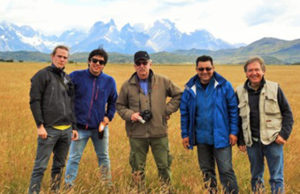 The project began successfully in January of 2018 with a collection expedition in different national parks of the southern zone of Chile (Magallanes Region), in the Torres del Paine National Park, the Laguna Parrillar National Reserve, the Pali Aike National Park, among other places. The expedition consisted of 6 researchers from Sweden, INIA and University of Los Lagos. This year a new expedition is being carried out in the regions of Araucanía, Los Ríos and Los Lagos, respectively, to cover the distribution area of the species of this genus in Chile.
The project began successfully in January of 2018 with a collection expedition in different national parks of the southern zone of Chile (Magallanes Region), in the Torres del Paine National Park, the Laguna Parrillar National Reserve, the Pali Aike National Park, among other places. The expedition consisted of 6 researchers from Sweden, INIA and University of Los Lagos. This year a new expedition is being carried out in the regions of Araucanía, Los Ríos and Los Lagos, respectively, to cover the distribution area of the species of this genus in Chile.
Project members
The project involves the researchers Professor Dr. Roland von Bothmer and Ph.D. student Jonatan Leo, Department of Plant Breeding, Swedish University of Agricultural Sciences – SLU – Sweden; Dr. Fernando Ortega (Coordinator of the National Program of Genetic Resources, INIA-Chile) and the agronomist Arturo Morales, researcher of Genetic Resources of INIA Carillanca and the professor Dr. Oscar Díaz (Department of Aquaculture and Agri-Food Resources, FITOGEN Program, ULagos – Chile).
”Genetisk mångfald av Elymus-släktet i Sydamerika” – ett internationellt samarbetsprojekt

